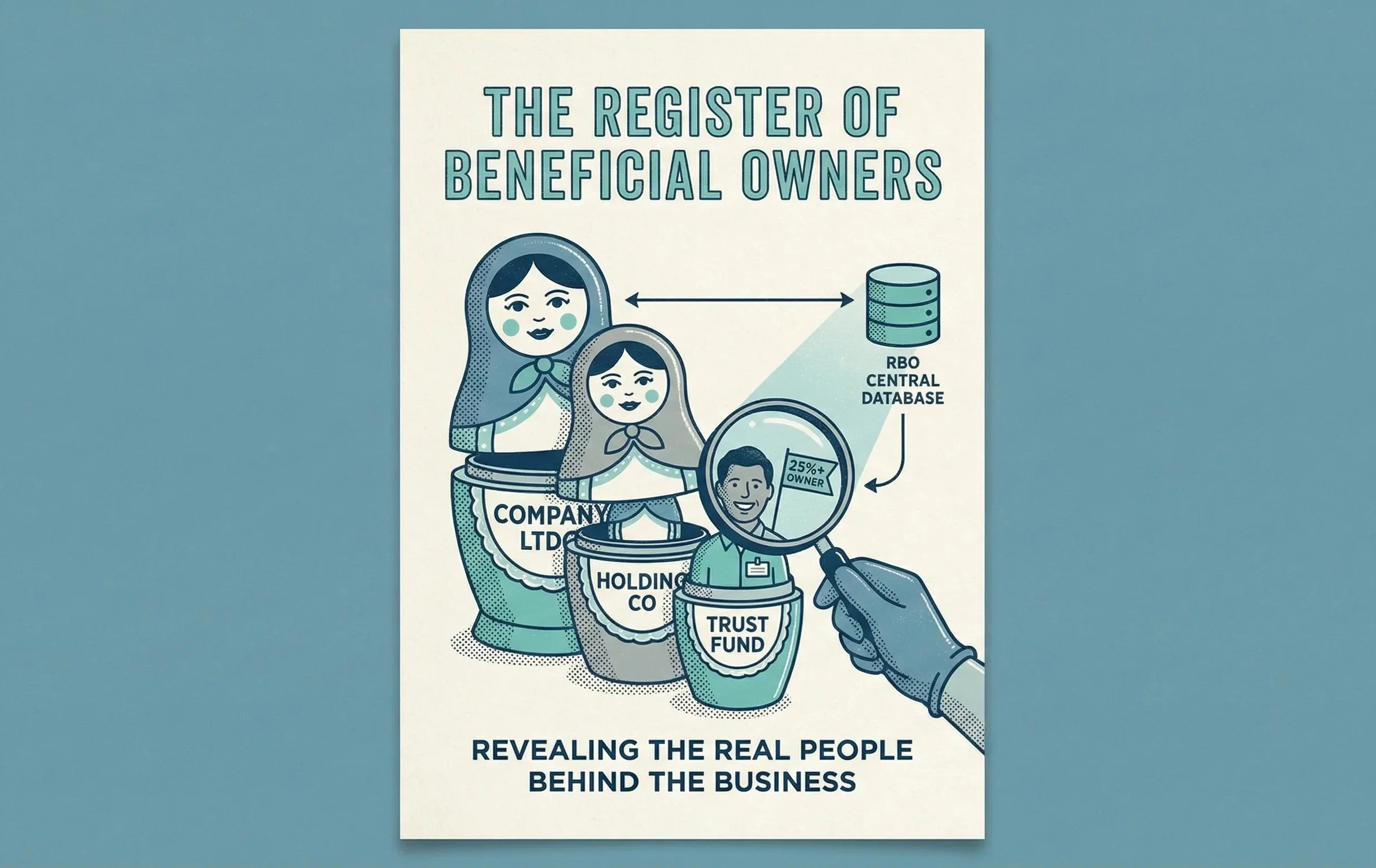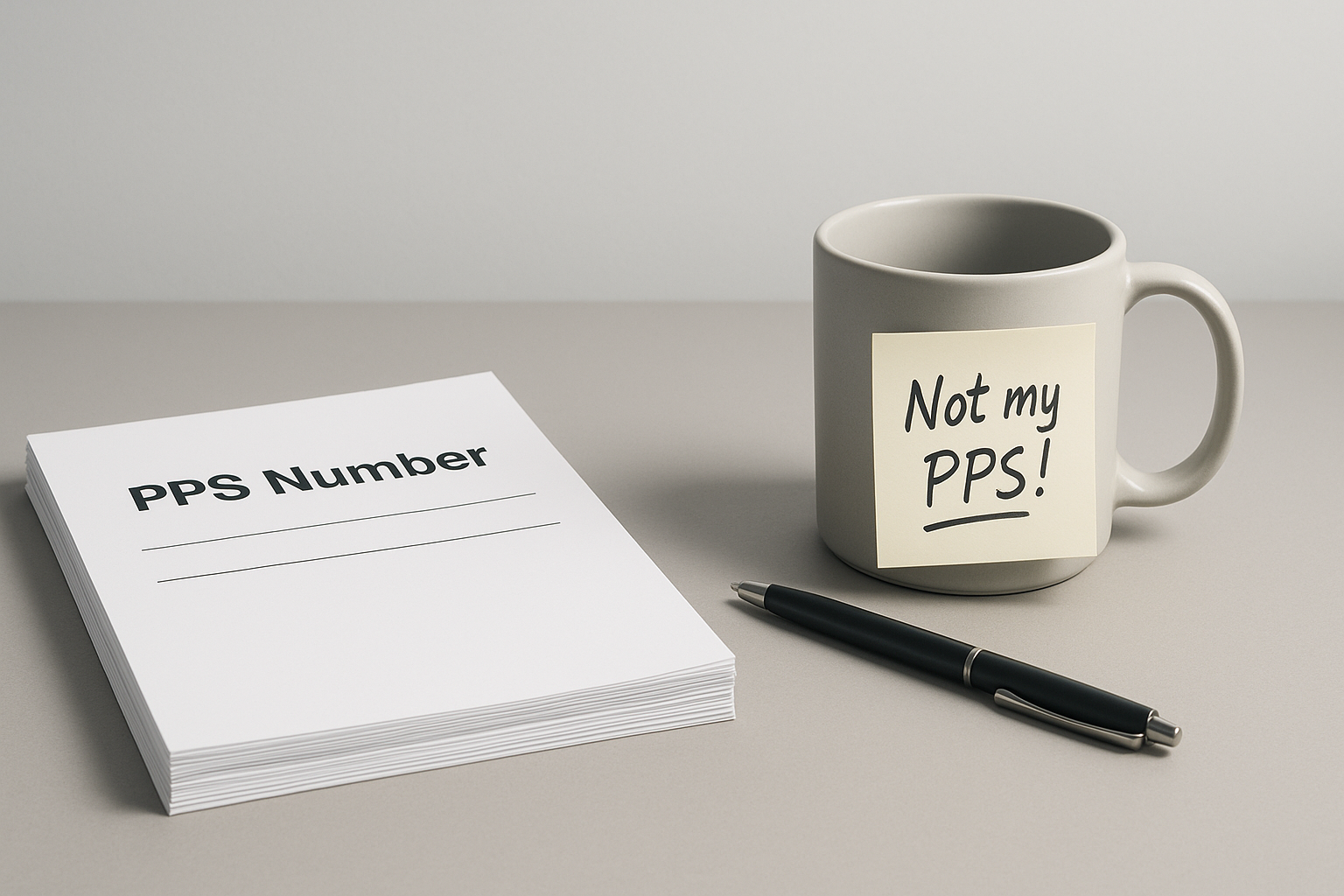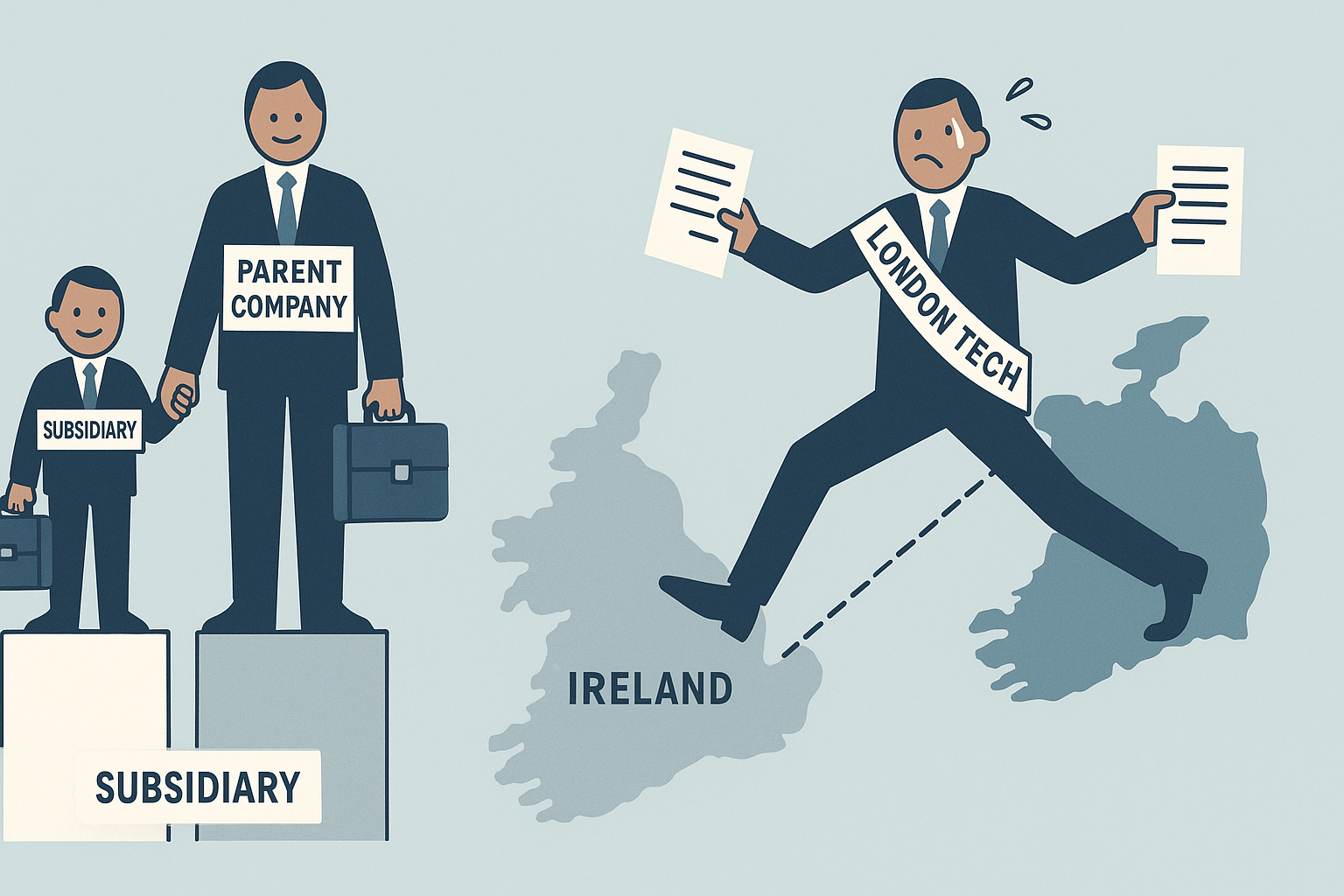This article is essential reading for new company directors, startup founders, and entrepreneurs who want to ensure their Irish company is set up correctly from day one, with proper attention to post-incorporation requirements and founder relationships.
Key Takeaways
- Put comprehensive founder agreements in place before issuing shares
- Secure IP rights through proper assignment agreements with all contractors
- Register for corporation tax within 30 days of incorporation
- Complete RBO filing within the five-month deadline
- Mark your annual return deadline and file within the 56-day window
- Maintain accurate records of all post-incorporation filings

Introduction
If you didn't read our article on the Top 5 Mistakes When Registering a Company in Ireland, you should read that first.
While that article focused on the incorporation process itself, this follow on article will focus more on the steps to do immediately after incorporation (or within a few months of it in some cases).
We have, at this stage, experienced hundreds of companies incorporate in Ireland and we've noticed several post-incorporation issues that consistently catch new founders off guard.
They are issues that are equally important as the initial registration, yet they are (sometimes understandably) overlooked in the excitement of getting the business started.
Mistake 1: Neglecting Founder Agreements

This is one of the regular mistakes we see, and unfortunately, we often only hear about it when it's too late.
Most founders start their business journey with a lot of trust, assuming they'll never fall out with their co-founders. It's a nice thought but we have now witnessed enough instances where the lack of a founders' agreement has become article-worthy.
We've seen how crucial these agreements become when a founder wants to exit, whether due to personal circumstances or disagreements.
Without proper "good leaver/bad leaver" provisions, you might find yourself with a former co-founder retaining significant shareholding despite no longer contributing to the business.
If they held a high enough shareholding, then you might have to just scrap the company and start again.
Mistake 2: Overlooking Intellectual Property Rights

This is a particularly tricky area of Irish law that can catch out even experienced businesspeople.
We've seen numerous cases where companies have paid thousands for to a consultant or freelancer on Upwork for website development, software creation, or design work, only to discover they don't actually own what they paid for! True story!
The solution is straightforward but often overlooked: an IP Assignment Agreement.
These need to explicitly transfer all rights to your company. Even founders should sign these (unless there are IP transfer clauses in their founders agreement - our template agreement has you covered).
We've had to help several clients navigate expensive legal processes to secure IP rights retrospectively – something that could have been avoided with a simple agreement at the start.
It's really hard to track someone down and get them to sign something if they have already been paid.
The solution here is the same as the founders agreement, ask for our template and make anyone that does anything creative for your company sign it.
*Except in an employer - employee relationship.
Mistake 3: Delayed Tax Registration

Here's a classic case where the law isn't as clear as it should be.
While Revenue requires registration within 30 days of "commencing to trade", there's no clear legal definition of when trading actually begins. Is it when you get your first customer? When you make that first euro?
Given this ambiguity, we always advise our clients to register within 30 days of incorporation.
The tax registration process itself is straightforward through ROS, so there's really no benefit in delaying.
Mistake 4: Missing RBO Filing Deadlines

The Register of Beneficial Owners (RBO) is a relatively new requirement that catches many founders by surprise.
We've noticed that even when founders are aware of it, they often underestimate the time needed to gather all the required information, especially for international founders who need to obtain foreign ID verification.
The five-month deadline might seem generous, but we've seen how quickly it can approach when you're busy getting your business off the ground.
This filing isn't just a box-ticking exercise – it's an anti-money laundering requirement, and the authorities take it seriously.
You need to identify anyone who owns or controls 25% or more of your company, and provide personal details about them. We do this for our companies so do reach out to us.
Mistake 5: Late Annual Return Filing

This is perhaps the most costly mistake we see new companies make, and it's frustratingly easy to avoid with proper planning.
Your first annual return filing has a very specific filing window – it opens exactly six months after incorporation and stays open for 56 days.
There is a €100 immediate penalty and €3 daily increases - up to a cap of €1,200. But the real sting is the loss of audit exemption for two years.
For a small company, this means paying for an external audit that will likely cost a couple of thousand euros, even if the company hasn't been earning any revenue yet – all because of missing a simple filing deadline.
The most frustrating part is that the annual return itself is relatively straightforward. It's not a complex document, but timing is everything. We advise our companies to mark this deadline in their calendars given its importance.
How Can Open Forest Help?
To avoid all of the above issues, let us take care of it.
Open Forest offers the cheapest and fastest incorporation packages in Ireland including holding companies for €99 including CRO fees, VAT and access to the Open Forest platform so you can keep track of all of your legal, tax and accounting obligations - at no additional cost.
Choose from one of our incorporation packages here and we will take care of the rest.

Stuart Connolly is a corporate barrister in Ireland and the UK since 2012.
He spent over a decade at Ireland's top law firms including Arthur Cox & William Fry.





.webp)
.webp)
.webp)





